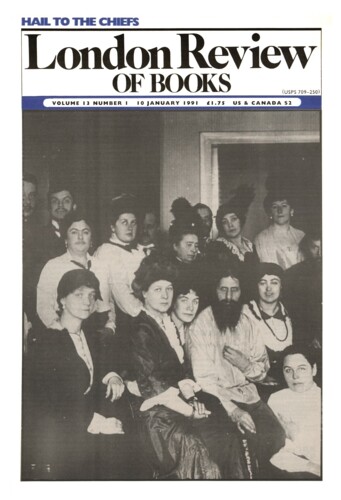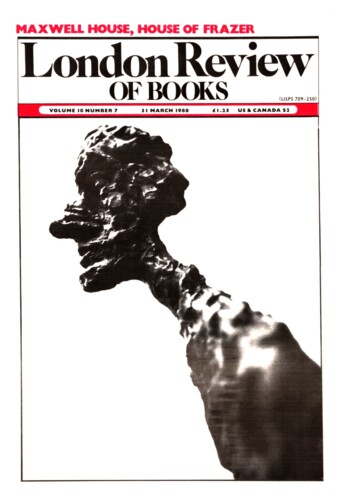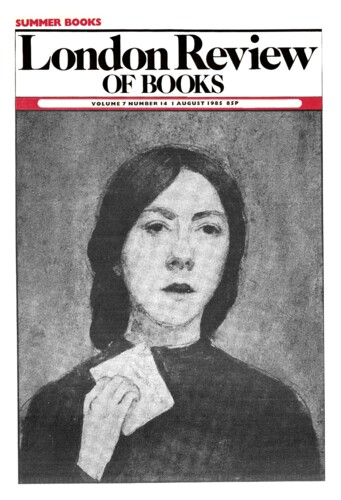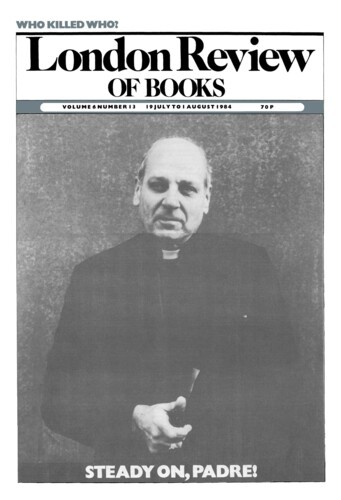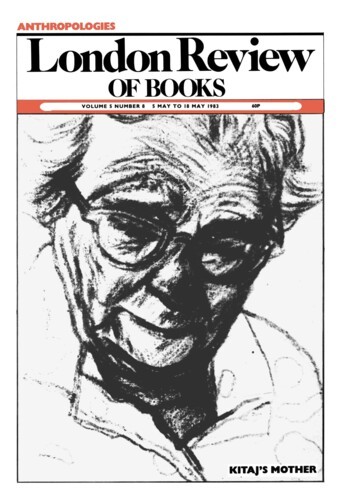Christopher Burns
Christopher Burns lives and works on the industrial fringe of the English Lake District.
Yak Sandwiches
Christopher Burns, 31 March 1988
John Murray’s fiction has always seemed to arise directly from the circumstances of his own life. At first, his work concentrated on his childhood and adolescence among the tiny, depressed communities that straggle along the English side of the Solway Firth. He then broke with his working-class background and read Sanskrit and Avestan at Oxford, later studying classical Indian medicine. These somewhat unexpected interests inform and animate many of the stories in this first collection, Pleasure. Meanwhile, although the autobiographical element in his work is still strong, a new range of settings has broadened his perspectives and brought his talent into sharper focus. The stories are linked, not by a common character, but by a kind of standardised personification of certain experiences, beliefs, interests. It isn’t too difficult to spot the similarities between the Cumbrian boy winning a scholarship to a prestigious university, the graduates wandering through the Indian subcontinent in the Calcutta and Katmandu stories, the character Stone on a ‘directionless pilgrimage’ through the Hebrides. And although the arrangement of the stories is not chronological, Murray is in the habit of specifying the ages of his protagonists, so that the progress of a life can be made out. Murray doesn’t flatter his alter ego, but portrays him as somewhat callow, lacking compassion, though clever, and often plunged into contrition because he does not, or will not, live by the certainties by which others steer their lives. He is nevertheless dogged by epiphany, so that wherever he goes, insight follows like an elusive and confusing sprite. The stages of his journey are set out in a style that is densely wrought, ironic, and eager to incorporate both vivid colloquialism and arcane abstraction. Such a form gives an individual pattern, not to say skew, to the content. A sense of the particular is fostered, too, by Murray’s selection of locale, his scrutineer’s exactitude on matters of the human face and form, and by his quirky, sometimes bizarre sense of humour.
Story: ‘A Country Priest’
Christopher Burns, 1 August 1985
That year we had the worst winter I had known. It had taken two men with picks to break the ground in the churchyard, and when the soil was lifted it was in great jagged lumps as heavy as stone.
Story: ‘Blue’
Christopher Burns, 19 July 1984
‘We’re certain it must be his,’ the phone call had said.
Story: ‘Differential Structures’
Christopher Burns, 5 May 1983
‘We both know the reasons.’ The mist was thick outside, turning trees in the park to ghosts, making the city noises hollow, condensing where it touched telephone wires, pavements, glass. It was, Savage speculated, like rain-forest mist. His imagination lifted him out of the room and its enclosed painful scene and into vistas of cloud rolling through cable-thick greenery where strange birds called.
Pieces about Christopher Burns in the LRB
Self-Effacers
John Lanchester, 24 May 1990
It’s sometimes easy to forget that good writing is not necessarily brilliant on the surface. There are talented novelists who eschew local flourishes in favour of a tonal evenness which...
Fictbites
Peter Campbell, 18 May 1989
The transition from mixture to emulsion in fiction (or in mayonnaise) is magical. The process is delicate. When fiction curdles, and globules of pure fact rise to the surface, the dishomogeneity...
Ruined by men
Anthony Thwaite, 1 September 1988
Alison Lurie’s new novel is, among other things, an anthology of several characters from her earlier novels. Readers unfamiliar with these books need not be apprehensive, however: The Truth...
Open Book
Nicholas Spice, 4 September 1986
Shmuel Yosef Czaczes, one of the finest writers of the 20th century, was born in 1888, in Buczacz, a small town in Galicia. Take out a large atlas and look up Buchach. You will find it in the...
Read anywhere with the London Review of Books app, available now from the App Store for Apple devices, Google Play for Android devices and Amazon for your Kindle Fire.
Sign up to our newsletter
For highlights from the latest issue, our archive and the blog, as well as news, events and exclusive promotions.
